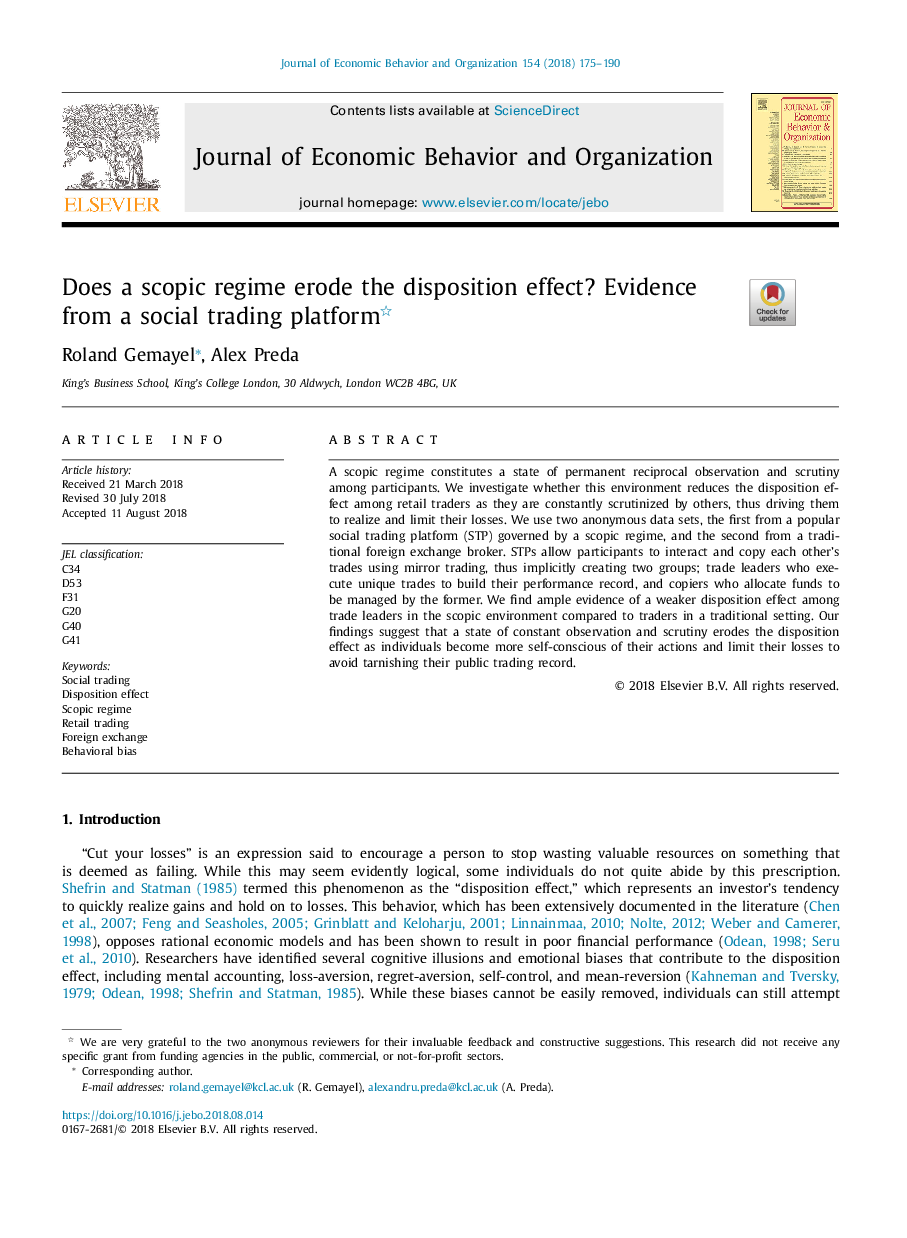| Article ID | Journal | Published Year | Pages | File Type |
|---|---|---|---|---|
| 10127595 | Journal of Economic Behavior & Organization | 2018 | 16 Pages |
Abstract
A scopic regime constitutes a state of permanent reciprocal observation and scrutiny among participants. We investigate whether this environment reduces the disposition effect among retail traders as they are constantly scrutinized by others, thus driving them to realize and limit their losses. We use two anonymous data sets, the first from a popular social trading platform (STP) governed by a scopic regime, and the second from a traditional foreign exchange broker. STPs allow participants to interact and copy each other's trades using mirror trading, thus implicitly creating two groups; trade leaders who execute unique trades to build their performance record, and copiers who allocate funds to be managed by the former. We find ample evidence of a weaker disposition effect among trade leaders in the scopic environment compared to traders in a traditional setting. Our findings suggest that a state of constant observation and scrutiny erodes the disposition effect as individuals become more self-conscious of their actions and limit their losses to avoid tarnishing their public trading record.
Related Topics
Social Sciences and Humanities
Economics, Econometrics and Finance
Economics and Econometrics
Authors
Roland Gemayel, Alex Preda,
